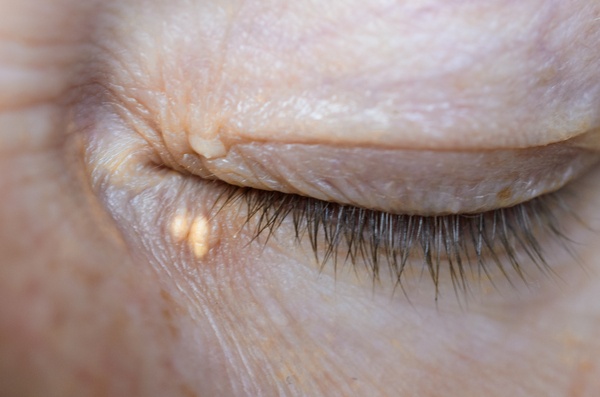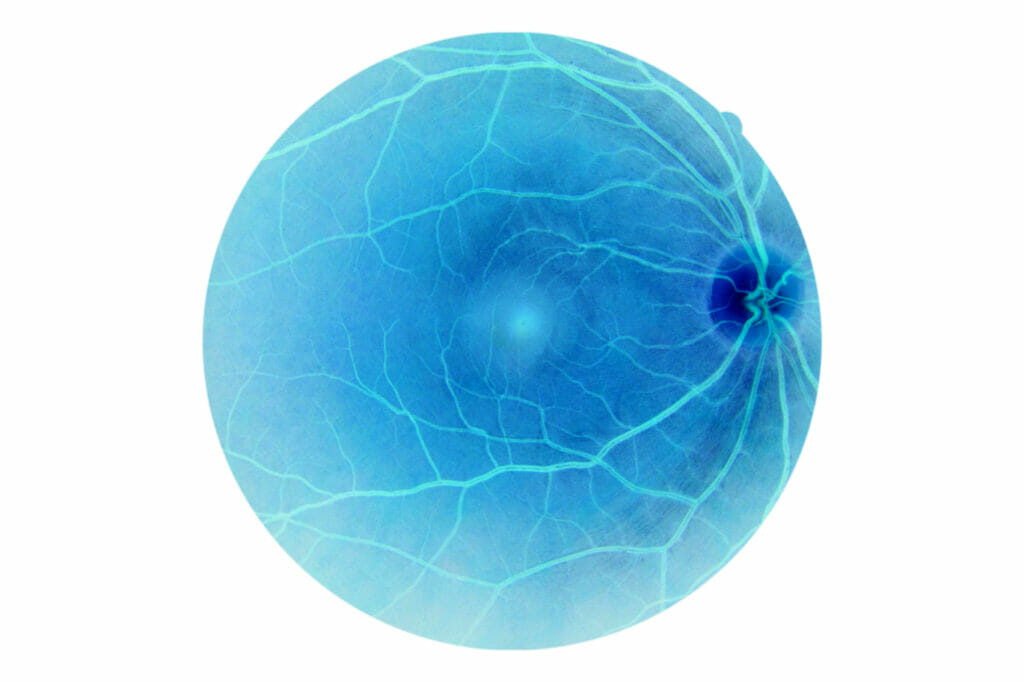Heart Health and Your Eyes
Posted in Bellingham, Eye Blog, Eye-Opening, Medical, Mount Vernon, Whidbey
By: Dr. Ernesto Golez III
Hearts and Eyes
Happy Heart Health Month! Did you know that your eyes can tell you about your heart health? The heart delivers oxygen and essential nutrients to the different parts of the body, including the eyes. Thus, any problems with the heart’s functioning will eventually affect the functioning of the eyes. In fact, early signs of heart disease may manifest in the eyes first before any other organ!
Your Eyes Tell a Story

Did you know that external examination of your eyes may hint at abnormalities in your blood? Many issues found early during an eye exam can allow you to get earlier, better treatment for other serious diseases.
Yellow growths called Xanthelasma, sometimes form near the inner corner of the eyelids. These are caused by excessive cholesterol in the body. When there is increased cholesterol in the body, it may cause clogging of the blood vessels and lead to a heart attack or a stroke.
White rings around the cornea also known as arcus senilis, are also made up of cholesterol. They are commonly seen in the elderly. Although mostly not harmful, these rings may indicate underlying conditions such as Familial Hyperlipidemia and Shnyder Crystalline Corneal Dystrophy. Patients with these conditions have inherently elevated blood cholesterol. If your eye doctor sees these rings before you turn 40, blood cholesterol and triglycerides may be checked so unhealthy levels can be treated.
Inside Your Eyes – Retina and Optical Nerve
By looking into the inner parts of your eye, we may be able to identify other abnormalities that indicate diseases of the heart and of the blood vessels.

other health problems
Findings in the retina such as narrowing of blood vessels, swelling, microaneurysms and leaking of fluid from blood vessels may indicate complications from diabetes and high blood pressure. A “stroke in the eye” can occur when retinal blood vessels either to or from the heart are clogged by blood clots, inflammatory cells, or fatty deposits.
Clogging of blood vessels to the optic nerve may lead to Ischemic Optic Neuropathy. Retina Vein Occlusion, Retinal Artery Occlusion and Ischemic Optic Neuropathy cause vision symptoms that vary from transient to permanent, and partial to generalized vision loss.
A type of glaucoma known as Normal Tension Glaucoma is associated with low blood flow and oxygen to the eyes and brain. Risk factors to watch for include low diastolic blood pressure, migraine, sleep apnea and Raynaud’s syndrome.
Pain

your risk of heart disease
Sometimes pain can occur with vision loss. An example of this is Giant Cell Arteritis, which can affect the blood flow in the arteries in your head, especially those in your temples.
Live Healthy
To decrease our risk of heart disease, living a healthy lifestyle and scheduling regular visits to your primary care physician is essential. Periodic checks of blood pressure, cholesterol and sugar levels are encouraged–especially for those who have higher risks.
How Often Should I See my Eye Doctor?
The American Academy of Ophthalmology recommends that healthy individuals aged 40 to 64 years of age should get a complete eye exam from an ophthalmologist every 2 to 4 years. For those ages 65 and older, a complete exam every 1 to 2 years is recommended.
Newly diagnosed Type II diabetics are also at risk for compromised heart health. They must have an eye examination at the time of diagnosis. Type 1 diabetes patient should have their first diabetic eye exam at least five years from their first diagnosis of diabetes then yearly thereafter, as recommended by the American Diabetes Society.

Ernesto Golez III, MD
Comprehensive Ophthalmology
Glaucoma
Contact Cascadia Eye
If you would like to learn more, or if you would like to schedule an appointment or consultation with our talented doctors at Cascadia Eye, please contact us today. You may also pre-shop for glasses at our online pre-shopping page any time. Our entire team is committed to protecting and improving your vision and the health of your eyes. We are happy to answer any questions you might have!
In addition, join us on Facebook, Instagram or YouTube to ask your questions about eyes, exams, and our practice. We’d love to hear from you – and there might be a blog to address your questions in the future.
pc Svetlana Dolfova/Dreamstime, lightmemories/dreamstime, Alexander Raths/dreamstime


